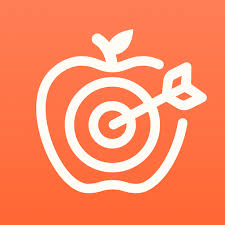Cronometer is a powerful app used by individuals aiming to track their nutrition, calories, and overall health. For many, it’s a go-to tool for logging food intake and maintaining a balanced diet. However, as with any digital tool that tracks complex data, one of the most crucial questions is: how accurate is Cronometer? In this article, we’ll examine the accuracy of Cronometer in detail, focusing on its ability to track calories, macronutrients, micronutrients, and other important health data. By the end, you’ll have a clear understanding of what to expect from the app and how to make the most of it for your health journey.

Understanding Cronometer’s Core Features
Before diving into Cronometer’s accuracy, it’s important to understand what sets it apart from other nutrition tracking apps. While many apps focus solely on calorie counting or macronutrient tracking, Cronometer is a comprehensive health tool designed for users who want to track a wide array of nutrients and health data. It goes far beyond just monitoring calories and macronutrients like carbs, fats, and proteins. Cronometer allows users to track over 80 nutrients, including essential vitamins, minerals, and other micronutrients, giving a more complete picture of their overall health and nutrition.
This level of detail makes Cronometer stand out in a crowded market, particularly when compared to other popular apps like MyFitnessPal. While MyFitnessPal excels at tracking calories and macronutrients, it doesn’t provide the same depth when it comes to micronutrients. Cronometer’s detailed nutrient tracking can be especially beneficial for those with specific dietary needs, such as athletes, individuals with nutrient deficiencies, or people following specialized diets like keto, vegan, or paleo.
Key Features of Cronometer:
- Tracks 80+ Nutrients: Cronometer tracks a wide variety of nutrients, including macronutrients (carbs, fats, proteins) as well as micronutrients such as vitamins, minerals, antioxidants, and electrolytes. This feature is incredibly useful for people who want to monitor their micronutrient intake closely, such as those with specific health goals or dietary restrictions.
- Custom Food Entries: One of the most powerful features of Cronometer is its ability to add custom food entries. This is especially useful for users who regularly eat specialty foods or meals that aren’t readily available in the app’s database. Whether it’s a homemade recipe or a unique product, users can enter precise nutritional details, ensuring that the app reflects their actual food intake accurately.
- Integration with Fitness Trackers: For those who use fitness trackers, Cronometer offers seamless integration with a variety of devices, including Fitbit, Garmin, and others. By syncing with fitness apps and devices, Cronometer provides a holistic view of your health by combining your nutrition data with your physical activity, sleep patterns, and biometric data. This integration helps users understand how their lifestyle choices affect their overall well-being.
- Progress Tracking: In addition to nutrition tracking, Cronometer also offers tools for monitoring other important health metrics, such as weight, body measurements, and exercise progress. This feature makes it easy to track changes over time and assess whether your dietary choices are aligning with your health goals. With daily, weekly, and monthly tracking options, you can see clear patterns and adjust your habits accordingly.
- Free and Premium Versions: Cronometer offers both a free version and a premium (Gold) subscription. The free version includes many essential features, such as nutrient tracking and food logging, while the Gold version unlocks advanced features, such as barcode scanning, custom reports, and detailed biometric tracking. The premium version is ideal for those who need more in-depth tracking or who want to personalize their experience even further.
Cronometer’s unique combination of nutrient tracking, custom food entry, and fitness data integration makes it an invaluable tool for individuals looking to take a more detailed approach to their health and nutrition. Whether you’re focused on weight loss, muscle gain, or just improving overall health, Cronometer provides the data you need to make informed decisions.

Accuracy of Cronometer’s Food Database
A key factor in determining Cronometer’s accuracy is the quality of its food database. Cronometer pulls data from several sources, including government databases, food manufacturers, and user-submitted entries. This means that the app generally provides accurate nutritional information, but it’s important to remember that user-generated data may sometimes be less reliable.
While the database is comprehensive, it’s not immune to errors. Items may sometimes be misclassified, or their nutritional information may not be updated to reflect current formulations or packaging. This is especially true for packaged foods where ingredients and nutritional values change over time.
How to Improve Accuracy:
- Verify Labels: Always check the product labels for accuracy, especially for packaged foods.
- Use a Food Scale: Measuring your food in grams rather than relying on volume measurements (like cups) can significantly improve the precision of your entries.
- Custom Entries: For more control over accuracy, you can create custom food entries for items you regularly eat, ensuring that the nutrient data reflects the actual food you’re consuming.
Macronutrient and Calorie Tracking Accuracy
When it comes to calorie and macronutrient tracking, Cronometer offers a high degree of accuracy compared to other apps. The app uses standard formulas to calculate the calories in food based on macronutrient content, and it generally performs well for most users. However, like all nutrition trackers, there are some inherent limitations when it comes to estimating calorie needs.
One major factor that impacts accuracy is Basal Metabolic Rate (BMR). Cronometer calculates BMR using algorithms based on your age, gender, height, and weight. However, BMR can vary greatly depending on individual factors such as muscle mass, metabolism, and hormonal health. As a result, Cronometer’s calorie recommendations might not always perfectly match your actual needs.
Ways to Adjust for Accuracy in Calorie Tracking:
- Track Consistently: By logging your food intake consistently and regularly weighing yourself, you can get a clearer picture of your calorie needs over time.
- Adjust Based on Results: If you’re not seeing the weight loss or maintenance results you expect, adjust your calorie intake by increasing or decreasing the number of calories consumed, depending on your goals.
- Take Activity Level into Account: Make sure to set your activity level correctly in Cronometer, as this influences your total daily energy expenditure (TDEE).

Micronutrient Tracking: Is Cronometer Accurate?
For those interested in tracking micronutrients like vitamins and minerals, Cronometer is one of the most detailed apps available. It allows users to track up to 84 different nutrients, which is far beyond what many other nutrition apps offer. However, while the database is extensive, it’s important to note that the precision of micronutrient data can be influenced by the accuracy of the food entries themselves.
In many cases, the app provides accurate values for common micronutrients like Vitamin A, C, D, calcium, and iron. However, for more specialized nutrients or rare foods, the database might not always have the most accurate or complete data. Additionally, variations in food preparation and growing conditions can influence the levels of certain micronutrients, making absolute accuracy challenging.
Improving Micronutrient Accuracy:
- Custom Entries for Supplements: If you use specific supplements, input their exact values manually for better tracking.
- Cross-reference with Lab Tests: For more critical nutrient tracking, consider cross-referencing your data with lab tests or advice from a dietitian to ensure accuracy.
Cronometer’s Weight and Fitness Tracking Accuracy
Another popular feature of Cronometer is its weight and fitness tracking. The app allows users to monitor their weight progress, set weight goals, and track other fitness-related data like body measurements, heart rate, and sleep. While these features are helpful, it’s important to note that Cronometer relies on user-submitted data, so the results can vary depending on how consistently and accurately users input their measurements.
For weight loss, Cronometer uses a simple formula that assumes a 3,500-calorie deficit leads to the loss of one pound of body weight. This approach works for many users, but individual factors such as metabolism, water retention, and hormonal fluctuations can make the actual weight loss process more complex. Users should be cautious about relying solely on the app’s weight goals without factoring in these variables.
Best Practices for Weight and Fitness Tracking:
- Track Weight Weekly: Weigh yourself at the same time each week, ideally in the morning before eating, for more consistent data.
- Focus on Trends, Not Daily Fluctuations: Weight can fluctuate due to many factors. Focus on the long-term trend rather than day-to-day changes.
- Consider Other Metrics: Along with weight, track measurements like waist, hips, and body fat percentage to get a better understanding of your progress.

User Experiences and Common Issues with Cronometer
While Cronometer is generally praised for its accuracy in tracking macronutrients and micronutrients, some users have reported challenges, especially with navigation and input precision. Here’s a closer look at the common issues users face and how they affect the app’s accuracy.
Accuracy in Tracking Nutrients
Cronometer is highly accurate when tracking basic foods and packaged items. However, some users find that the accuracy can drop when logging homemade meals or foods not included in the app’s database. This is mainly due to the reliance on user-submitted data, which can occasionally be inaccurate. For those who require precise tracking of nutrients like vitamins or minerals, it’s important to ensure that the food data entered is correct or manually adjusted.
Challenges for New Users
While Cronometer is a robust tool, it can feel overwhelming for those new to food tracking. The app’s interface, although functional, is often reported as less intuitive than other tracking apps. Beginners may find it difficult to quickly understand how to input data, track nutrients, and navigate through its various features. However, with some experience, users typically adapt to the app’s layout and can appreciate its thoroughness.
The Role of Input Accuracy
To get the most accurate results from Cronometer, input accuracy is key. Users need to measure portions carefully, particularly for homemade meals, as the app’s data relies on precise measurements to calculate nutrients and calories. Without careful attention to detail, even small inaccuracies can lead to skewed results.
Fitness and Syncing Issues
Cronometer integrates with fitness trackers like Fitbit and Garmin, but some users have reported syncing issues. These problems can affect the overall calorie tracking and activity data. For those using the app to adjust their food intake based on exercise, any syncing error could lead to discrepancies in their caloric needs.
Premium Features and Value
Cronometer offers both free and premium versions. While the free version provides essential features, the Gold subscription unlocks additional tools like barcode scanning and custom reports. Some users find the premium features valuable, especially if they need more detailed tracking, while others feel the free version is sufficient for their needs.
Cronometer is a powerful and accurate tool for those tracking both macronutrients and micronutrients, but its effectiveness depends on the accuracy of the data entered and how users navigate the app. For those new to food tracking, there may be a learning curve, but with careful input and practice, it becomes a reliable resource for health and nutrition goals.

Looking for Simplicity in Nutrition Tracking? ReciMe is Your Answer
If you’re looking for a simpler way to track your nutrition and macronutrients, ReciMe can be a great alternative to Cronometer. While Cronometer offers detailed tracking of macronutrients and micronutrients, it can sometimes feel overwhelming, especially for users who are new to nutrition tracking or simply prefer a more streamlined experience. We created ReciMe with these needs in mind – we aim to offer an easy-to-use tool for tracking the nutritional value of the meals you prepare, without the complexity of managing every single nutrient.
At ReciMe, our focus is on simplifying the process of logging your meals and tracking macronutrients like protein, fats, and carbs. When you save a recipe in ReciMe, we automatically calculate the calories and macronutrients for you. This makes it easy to stay on top of your nutrition and ensure you’re hitting your dietary goals without having to input extensive details or worry about manually calculating everything.
When it comes to accuracy, we ensure that the calorie and macronutrient calculations in ReciMe are based on reliable sources, so you can feel confident in the data you’re tracking. While ReciMe doesn’t offer the same depth of micronutrient tracking as Cronometer, our focus on macronutrients ensures that you’re staying on top of the most important aspects of your diet. This approach is ideal for those who don’t need to track every single nutrient but still want to maintain a balanced and healthy diet.
But ReciMe doesn’t just stop at macronutrient tracking. Our app also offers features like recipe organization, meal planning, and grocery list creation, all in one place. Whether you’re cooking at home or planning meals for the week, ReciMe helps you stay organized and save time. Plus, we’ve designed the app to work seamlessly across devices – available on iOS, Android, and as a Chrome extension – so you can access it from anywhere.
If you’re after a simpler, more focused experience that helps you manage your recipes, meal planning, and macronutrient tracking with minimal hassle, ReciMe offers an easy and efficient solution.
Just try it – you’ll love it:


Conclusion
Cronometer is a robust and powerful tool for individuals who want to track their nutrition, calories, and overall health. With its ability to track over 80 nutrients, including macronutrients and micronutrients, it stands out from other tracking apps, especially for those with specialized dietary needs. While its food database is generally accurate, the app’s effectiveness depends on the accuracy of user input. Custom food entries and careful measurements can greatly improve tracking precision, particularly for homemade meals and less common foods.
Although Cronometer offers detailed tracking and useful integrations with fitness trackers, it can be overwhelming for new users due to its extensive features and somewhat complicated interface. However, for those who are serious about tracking every aspect of their diet and health, Cronometer provides valuable insights that help achieve long-term health goals. For users seeking simplicity, there are alternative tools like ReciMe that focus more on macronutrient tracking and meal organization.
Ultimately, Cronometer excels in providing in-depth nutritional data, but its success is reliant on how accurately users engage with the app. Whether it’s for weight loss, muscle gain, or simply improving overall health, Cronometer can be an invaluable resource if used with attention to detail and consistency.
FAQs
How accurate is Cronometer when tracking calories?
Cronometer generally provides accurate calorie counts based on the macronutrient content of foods. However, accuracy can vary depending on the quality of data entered, especially for user-submitted entries. For the most reliable tracking, users should verify product labels and weigh their food when possible.
Does Cronometer track micronutrients?
Yes, Cronometer tracks over 80 nutrients, including vitamins, minerals, and other micronutrients. This makes it a comprehensive tool for those wanting to monitor their intake of essential nutrients, in addition to macronutrients like protein, fats, and carbs.
Can Cronometer help with weight loss?
Yes, Cronometer can assist with weight loss by allowing users to track their calories and macronutrients. It calculates your Basal Metabolic Rate (BMR) and adjusts for your activity level to provide a daily calorie target. Consistent tracking and adjustments based on results are key for successful weight management.
Is Cronometer user-friendly for beginners?
While Cronometer is powerful and detailed, its interface can feel overwhelming to beginners. The app offers a lot of features, and learning how to use them effectively may take some time. However, once familiar with the app, users often appreciate its thoroughness and functionality.
Can I use Cronometer to track exercise?
Yes, Cronometer integrates with fitness trackers like Fitbit and Garmin, allowing you to sync your exercise data with your nutrition log. This integration provides a more complete picture of your total daily energy expenditure (TDEE) and supports informed decisions regarding your food intake.
What’s the difference between the free and premium versions of Cronometer?
The free version of Cronometer includes basic features like nutrient tracking and food logging. The premium (Gold) version offers additional features, including barcode scanning, custom reports, and more detailed biometric tracking. The Gold version is ideal for users who need more in-depth tracking and personalized insights.
How do I improve the accuracy of my Cronometer tracking?
To improve accuracy, always verify the nutritional data for packaged foods, use a food scale for precise measurements, and create custom entries for foods you regularly consume. Additionally, keeping your activity level updated and consistently tracking your progress can help ensure more accurate results.
